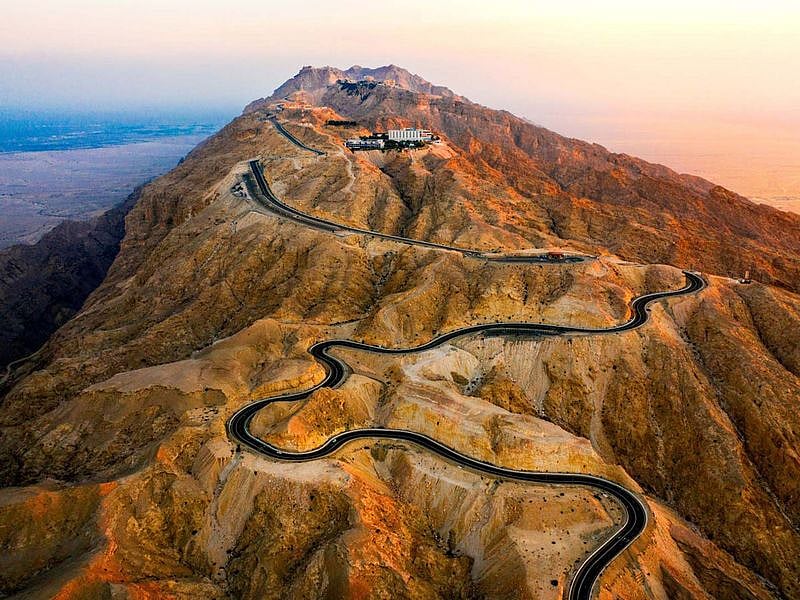As UAE residents gear up for long drives, desert trips and camping during the National Day holidays, doctors are urging families to plan ahead to avoid preventable health scares on the road.
Despite the pleasant winter weather, many travellers underestimate the health risks associated with long hours behind the wheel, higher altitudes and outdoor activities, experts underlined.
Overlooked issues
Dr Princy John P, Specialist Internal Medicine at Aster Clinics in Dubai Investment Park (DIP), said cooler months encourage families “to reconnect with nature and create lasting memories”, but warned that simple oversights can lead to discomfort or even emergencies.
“The most common health concerns include dehydration due to exposure to dry air and long drives, motion sickness or headache on winding mountain roads, digestive discomfort from irregular or heavy meals, blood sugar fluctuations in diabetics, and altitude-related fatigue or shortness of breath,” she said.
Hypertension patients may also experience blood pressure changes, while minor injuries are common during stopovers and camping.
“With simple preparation, most of these can be comfortably managed,” she underlined.
Echoing this, Dr Baiju Faisal, Consultant Internal Medicine at Lifecare Hospital in Abu Dhabi’s Musaffah, said fatigue remains one of the biggest risks during long drives.
“Long hours on the road can lead to tiredness and reduced alertness, increasing accident risk. Drivers should take breaks every two hours and stay well-hydrated.”
Dr Faisal noted that unburn is also a year-round concern in the UAE. “People forget that sun exposure is still strong in winter. Use sunscreen and wear protective clothing.”
First-aid checklist
Both doctors stressed carrying a well-stocked first-aid kit, with Dr Princy highlighting hydration salts, pain and fever relievers, allergy medication, antacids, motion-sickness tablets, reliever inhalers for asthma patients, glucose tablets and glucometers for diabetics, and a buffer supply of all routine medications.
“Blood pressure fluctuations are common during long drives. Patients must take their antihypertensives on time,” Dr Princy noted. “A compact, organised kit can prevent small problems from becoming emergencies,” she said.
Dr Faisal recommended including adhesive bandages, gauze, compression bandages, antiseptic cleansers, antibiotic ointment, pain relievers, oral rehydration salts, antidiarrheal medication and sunscreen.
“Copies of prescriptions and personal medications should also be kept handy,” Dr Faisal said.
Keeping children safe
Dr Princy noted that children are more vulnerable to motion sickness, temperature shifts and dehydration. Parents should watch for irritability, nausea, tummy pain, headaches and ear discomfort on mountain routes.
“Layered clothing, regular hydration and light meals help keep children comfortable,” she said.
Dr Faisal pointed out that all children should be seated in age-appropriate car seats or booster seats and must ride in the back seat. “Never leave children unattended in vehicles. Carry enough snacks, water and entertainment for them,” he advised.
Red flags
The doctors urged families to seek help immediately if anyone develops chest pain, palpitations, shortness of breath, severe vomiting or diarrhoea, allergic reaction, high fever, loss of consciousness, seizures or severe injury, sudden dizziness or fainting. Severe asthma attacks, unusual drowsiness in children, or signs of a stroke such as sudden weakness, confusion, numbness, trouble speaking or vision changes require urgent care.
“If anyone feels too tired or drowsy to drive, stop immediately,” Dr Faisal underlined.
Smart travel habits
Drink water frequently,
Take 10-15-minute breaks every 2-3 hours,
Stick to lighter meals and healthy snacks,
Dress in layers for changing temperatures,
Keep the first-aid kit easily accessible,
Save emergency contacts and nearest medical facilities,
Ensure regular medications are packed with a buffer supply,
Avoid alcohol, stay alert, follow speed limits.
“Small steps like packing essentials, staying hydrated and knowing early warning signs make a huge difference. Go ahead, explore the deserts and mountains, enjoy the open skies, but be prepared and stay safe,” Dr Princy added.
Sign up for the Daily Briefing
Get the latest news and updates straight to your inbox
Network Links
GN StoreDownload our app
© Al Nisr Publishing LLC 2026. All rights reserved.
